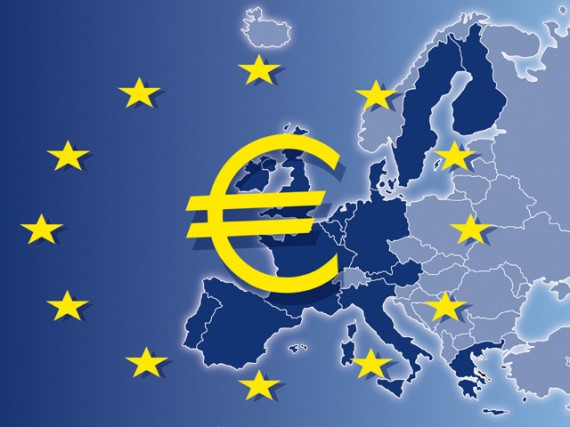Eurozone Deal In Doubt As Greeks Schedule Referendum
The Eurozone deal reached over the weekend, already in doubt for the reasons that James Joyner noted on Sunday, fell into further doubt today when the Greek Prime Minister decided to schedule a referendum to get the approval of the Greek people for the austerity deal that Europe is seeking to impose on them:
ATHENS — European markets slid dramatically on Tuesday after Prime Minister George A. Papandreou stunned the continent’s leaders with a surprise announcement late Monday that his government would hold a referendum on a new aid package for Greece.
The proposed ballot will put Greek austerity measures — and potentially membership in the euro zone — to a popular vote for the first time, risking Mr. Papandreou’s political future and threatening even greater turmoil both among the countries that share the single currency and further afield.
His announcement sent tremors through Europe’s see-sawing markets on Tuesday, with bank stocks taking a particular hammering because of their exposure to Greek debt. At midday, the German DAX index was down by 5.3 per cent while the French CAC 40 had slipped by roughly 4.2 per cent. In Britain, which is not a member of the euro zone but trades heavily with continental Europe, the FTSE 100 index was down by around 3.2 percent.
President Nicolas Sarkozy of France is expected to speak with German Chancellor Angela Merkel by phone during the day on Tuesday to discuss the referendum, which took both leaders by surprise, Agence-France Presse reported. The French president was said to be “dismayed,” according to Le Monde, citing an unnamed confidant of Mr. Sarkozy.
The German Finance Ministry deflected questions in a statement early Tuesday that the call for a referendum “is a domestic political development on which the German government has no official information yet and which therefore it will not comment on.”
But Rainer Brüderle, a senior member of Ms. Merkel’s governing coalition and a former finance minister, said in a radio interview on Tuesday that he was “irritated” by the move, which he called “a strange thing to do.”
“This sounds to me like someone is trying to wriggle out of what one has agreed to,” he was quoted by Der Spiegel as saying.
Mr. Papandreou’s surprise promise of a vote on the austerity package introduced a note of uncertainty in what had seemed to be a done deal, threatening a comprehensive agreement reached by European leaders last week to shore up the euro zone. A rejection by the voters would also be likely to be treated as a vote of no confidence in the government and lead to early elections.
The anxiety stirred up by those fears hammered United States financial markets on Monday, showing once again how the domestic politics of even the smallest members of the European Union can create troubles that not only threaten the currency but reverberate around the globe.
Unless he’s trying to cover himself domestically or paper over a split in his own party, there’s really no rational reason for what Papandreou is doing here. Not only is there a better than even chance that Greek voters will reject the deal, thus sending Greece and the rest of Europe over the brink, but the 6-8 weeks between now and the vote are likely to be chaotic all around. Already, European markets are down and American markets are set to follow. For whatever reason, the Greeks have decided it would be fun to play with fire but we may all end up getting burned.







Yes, right after “jubilation and newfound confidence” bouyed the markets on Monday, and it isn’t a one off. An important lesson here for investors: equities markets are always wrong and are always dominated by reaction and groupthink. Do your own analysis and keep your own council.
@ Doug — Greece is damned no matter what — take austerity and the bail-out and maybe see 2007 per capita income levels in 2022 OR default and take a bigger initial hit as there will be a massive bank run on Greek banks, [and most likely on the banks of Greece’s major trading partners], devalue a new drachma and set up for an export led boom by 2017.
Those are the choices that Greece faces, and I outlined the relatively optimistic case for each choice. Papandreou is covering his own ass and handing the decision (probably default and devalue) to the Greek people so his party is not dogmeat for the next three generations.
@Dave Anderson:
I tend to think you’re right. This deal was a bad idea from the start anyway, if it fails that may be the best thing in the long run. More importantly, Greece doesn’t belong in the Euro, neither does Portugal for that matter.
@Doug Mataconis: If the ECB does not want/is not able to tolerate an interest rate regime that is non-ideal for Germany AND does not want to be lender of last resort, then no one besides Germany and perhaps the Netherlands belongs in the Euro.
The economies are not syncronized sufficiently and there are no sufficiently large counter-cyclical cross-regional cash flows to smooth out temporary imbalances.
@Dave Anderson:
“…set up for an export led boom by 2017”
The problem is that Greece has very little that is likely to boom even with devaluation.
It’s manufacturing sector is relatively weak, major earners are foodstuffs, beverages and tourism and some raw materials and shipping, and it’s difficult to see a enormous growth in Greek exports without major investment and over a long time scale.
And foreign investors may be wary of currency risks and political factors; which of course were major reasons Greece wanted in to the EU and euro in the first place.
Devaluation might help Greece somewhat, assuming it can balance increased import costs, and loss of euro investment sources.
But absent an oil boom in the Aegean, I have my doubts as to how far it can provide an easy out.
Then again, compared to decades of deflationary austerity, maybe it’s the least worst path.